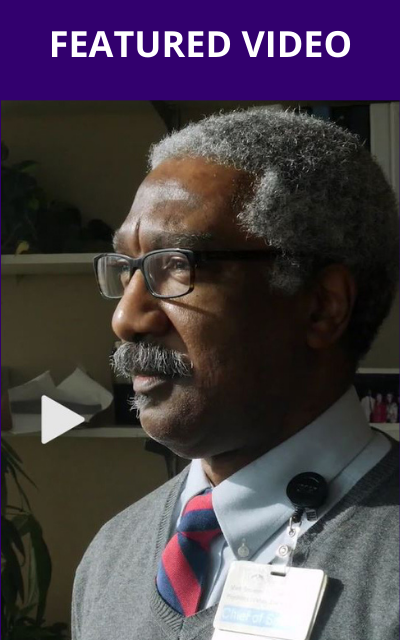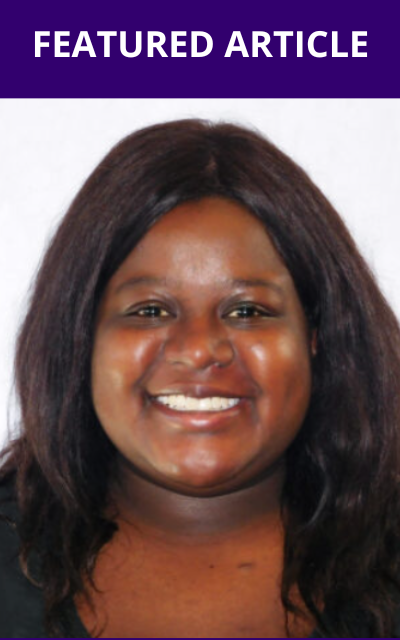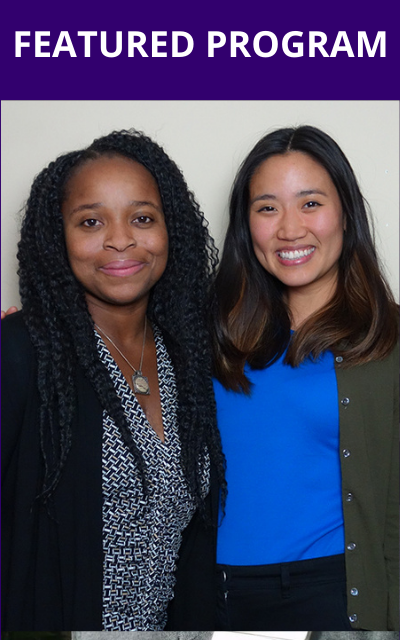The Department of Psychiatry and Behavioral Sciences is committed to promoting diversity in our students, residents, fellows, staff and faculty. Consistent with the UW School of Medicine’s commitment to building and sustaining a multicultural community fostering equity, diversity and inclusion, we believe we must recruit, retain and develop individuals with diverse backgrounds including race and ethnicity, gender, and sexual orientation to provide the highest quality care to the diverse patient population of the Seattle and Northwest region. The quality of our educational and research programs is strengthened by the breadth of experience, viewpoints, and knowledge brought by a diverse group of trainees, faculty and staff.
To achieve this goal, we nurture and sustain a climate of equity and respect for all individuals. We coordinate activities with UW Medicine’s Office of Healthcare Equity to ensure we have inclusive curricula and to create educational opportunities that reach minority students. We seek to mentor and develop faculty, staff and trainees at all levels from diverse backgrounds and support research focused on the needs of multicultural patients from communities of the Pacific Northwest, across the United States, and around the world.
Tackling disparities
Much of our work focuses on serving individuals and families who are often ignored or underserved in medicine and health care. People who live with mental illness and addictions experience some of the most extreme health disparities in terms of life expectancy and access to care. Health disparities in individuals or populations is a serious challenge we embrace every day, and our faculty, staff and trainees bring their diverse backgrounds, training, life experiences, expertise and perspectives to the wide variety of conditions and populations we treat.
Current Initiatives
We formed our department-wide Equity, Diversity and Inclusion Council to be in line with and in support of the efforts of the UW Medicine Office of Healthcare Equity and UW’s Diversity Council. The Council is led by Mark Snowden, MD, MPH, and Ty Lostutter, PhD, and its initial work will focus on 1) communicating about initiatives and best practices being developed by existing organizations and committees in the department; 2) diversifying the faculty and staff; and 3) promoting at the department level ways to improve the climate of the department. The Council is open to anyone in the department – faculty, staff and trainees – and you can attend a meeting to see what it’s about without committing to ongoing participation. Representatives from Centers and groups with established EDI committees are encouraged to attend to help us learn from each other and share information. Please reach out to Mary Pyper with any questions.
The EDI Staff Committee works to create a safe, inclusive and diverse environment that supports department staff personally and professionally. They champion organizational change and bring an EDI and anti-racism lens to the department’s work. Read their 2023-24 Action Plan.
The committee co-chairs are Christina Clayton, MSW, LICSW, SUDP and Jennifer Magnani, MSW, LICSW. Please email staffedicommittee@uw.edu if you want to learn more about the Committee’s work or are interested in joining.
Jürgen Unützer, MD, MPH, MA, serves as the Executive Sponsor and Michelle Lynch, MPA, serves as its Executive Champion. Current subcommittee include professional development, resources and communications, and staff research and surveys.
Classified and professional staff members have the opportunity to join the committee any time of year. Membership is open to all roles of department staff, and we aim to have representation across our centers and programs. Staff who wish to contribute to the broader work of the department are encouraged to join. If you’re interested in learning more, please reach out to Michelle, Christina or Jennifer.
We’re thankful to Paula Houston, EdD, UW Medicine’s Chief Equity Officer, for her help in getting us organized, and for the Leaders Guide for Convening and Running an Effective EDI Committee put together by UW Medicine’s Office of Healthcare Equity.
Members
- Semhar Abraha
- Hope Angel
- Casey Chandler
- Christina Clayton
- Vaughan Collins
- Laura Cooley
- Amy Lee Davis
- MK Davis
- Sarah Fikre
- Michelle Lynch
- Jennifer Magnani
- Jonathan Orrala
- Victoria Shepard
- Julia Shoots
- Becky Sladek
- Jed Thompson
- Andie Uomoto
The Climate Survey for faculty and staff, last offered in 2019, is part of our ongoing commitment to creating an environment that will allow all department members to succeed and find fulfillment in their work. Administered and analyzed by the Faculty Diversity Committee chaired by Mark Snowden, MD, MPH, the results help identify opportunities for cultivating a more inclusive and supportive work environment.
Born out of the results of our 2019 Climate Survey, we convened a one-year workgroup led by Deb Cowley, MD, and Maureen Johnson that looked at ways to foster a positive working environment for our trainees, faculty, and staff. The workgroup made a number of recommendations that we implemented or are pursuing.
We continue to look for ways to support EDI efforts and bring in diverse voices at department events including our Grand Rounds presentations, Staff Town Hall, Staff Appreciation Lunch, Department Leadership Council and Department Annual Meeting. Examples include:
The Staff EDI Committee presented about their 2023-24 Action Plan at our first Staff Town Hall in 2023.
Jonathan Kanter, PhD, presented a Grand Rounds on Microaggressions: bringing nuance and science to the discussion.
Ben Danielson, MD, presented a Grand Rounds on Intersections: racism, healthcare and wellness.
Paula Houston, Ed.D., UW Medicine’s Chief Equity Officer, presented a breakout session on best practices for forming an EDI Staff Committee at our Department Annual Meeting.
Our Research Retreat featured a keynote presentation on Seattle Children’s NIH Diversity Supplements Connection Program as well as a breakout session on “Equity, Diversity and Inclusion in all Levels of Research” led by Seema Clifasefi, PhD, and Myra Parker, PhD. Previous year’s retreats featured a keynote by Leo Morales, Chief Diversity Officer for the UW School of Medicine, and a keynote on Diversity in Research by Seema Clifasefi, PhD, and Susan Collins, PhD.
Our Staff Appreciation Lunch featured Greg Taylor from UW Professional Organizational and Development who provided anti-racism training to help us engage in authentic, outcomes-based dialogue and action steps about race, diversity, equity, inclusion, and social/economic opportunity.
In an effort to be welcoming to all new faculty and staff, we host a monthly Visit with the Chair, an informal gathering that offers an opportunity to talk with Chair Jürgen Unützer, MD, MPH, MA, connect with our Human Resources team, and meet other new members of the department. Employees can attend multiple times during the first six months of employment.
We also offer a department orientation to new faculty and staff that goes over the mission, vision, and goals of our department. The presentation covers how our department fits into UW, UW Medicine, and the WWAMI region, ongoing work and new initiatives, and an overview of the various ways faculty and staff can stay connected and informed.
We welcome all new faculty and staff in our monthly newsletter by including their photo, a brief bio, and their contact information.
The Psychiatry Residency Training Program is committed to recruiting and supporting a diverse resident body. We value diversity in age, race, ethnicity, gender, sexual orientation, disability, socioeconomic status and geography. We have made continuous quality improvements to our recruitment process to reduce bias and enhance diversity. Some changes include updating our holistic selection criteria, adopting a standardized interview process, requiring all members of the admissions committee to complete an anti-bias training, acknowledging implicit bias during before every admissions meeting and analyzing our data for any biases. Additionally, we value applicants who demonstrate a commitment to diversity and equity through their academic pursuits, leadership and clinical work.
We are committed to continuously reviewing our residency curriculum to eliminate racism and teach best practices for providing equitable care. Our curriculum includes didactics on topics such as social determinants of mental health, implicit bias, microaggressions, cultural humility and the Cultural Formulation Interview, racism and psychiatry, and working with special populations. In April 2021, residents will participate in a half-day, interactive antiracism workshop given by guest speaker Dr. Danielle Hairston, the residency program director at Howard University and President of the American Psychiatric Association’s Black Caucus. Topics will include structural racism in psychiatry, bias in assessment and diagnosis, approaching structural racism with patients, and racism in medical training. Our clinical education includes opportunities to train in a wide variety of clinical care settings where residents work with diverse and underserved populations.
To monitor and guide our efforts, our program has formed a Diversity, Equity, and Inclusion Residency Committee, a Resident Anti-Racism Workgroup, and a Chief Resident for Diversity and Inclusion position.
The Psychology Internship Program is committed to encouraging cultural competency and promoting diversity advancement and training. The internship values diversity in geography, age, socioeconomic background, sexual orientation, gender, race, ethnicity, and disability, and applicant commitment to diversity in research and clinical work is considered positively in applications. The Diversity Advancement Committee encourages conversations about diversity and its role in the training of residents; promotes education of residents and faculty on issues of individual and cultural diversity as these relate to clinical work, consultation, supervision, and evaluation, and research methods/design; serves as a resource “hub” of information on diversity issues for everyone involved in the internship; and works to recruit and retain diverse residents, fellows, faculty, and speakers, as well as those interested in diversity issues.
Our Diversity Visiting Medical Student Subinternship Program administered by Heidi Combs, MD, gives highly qualified fourth-year medical students from backgrounds historically underrepresented in psychiatry an experience of the exceptional psychiatry training program offered by our department.
News item: Q & A: Psychiatry Visiting Scholars Program
In 2021, we hosted an informational session for PIs eligible for the NIH Diversity Supplements Program to help them navigate the application process, including a panel of faculty and trainees who have experience with the program, either as a former mentor or mentee. The intention was to share information about how to secure a candidate and to provide a platform for faculty to ask questions about the process and program. The session was part of an ongoing effort to encourage and support faculty members in the pursuit of diversifying their research teams.
Several faculty members have since secured diversity supplements.
News item: Diversity supplement awarded to HaRRT Center
Supported by philanthropy and department funds, our Staff Scholarship Award is administered by the Professional Development subcommittee of the Equity, Diversity and Inclusion Staff Committee. It promotes staff professional development by helping pay for the cost of classes, conferences, meetings and workshops that further one’s career and benefits the work of the department with priority given to EDI-focused and/or team requests. One example below:
The UW CoLab team took part in a two-day diversity and inclusion training funded by the Department of Psychiatry and Behavioral Sciences’ Staff Scholarship Program. The goal of this training was to better equip all staff and faculty to provide a more inclusive and equitable work environment as well as to improve and inform our community-driven research and codesign collaborations. The training itself was extremely informative and the facilitator did an excellent job of providing engaging and valuable information to CoLab members of all backgrounds.
The overview of our EDI assessment results was insightful and showed how even within our small bubble, there was a lot of variation in intercultural competency. The group discussions that ensued also focused on the general tendency for white people to expect/not recognize that the default work culture is primarily white and that the solution isn’t to try to remove culture altogether (thereby defaulting to white culture), but to recognize and celebrate the cultural diversity of the people that make up any workgroup or collaboration. The Iceberg Activity we did as a group really drove that message home by identifying the aspects of our work culture (both above the water/easily visible to others, and below the water/less immediately visible to others) where we can increase cultural inclusion. Finally, we went over microaggressions training, which identified and provided advice on how to interrupt microaggressions as they happen and how to receive and react to feedback on them after they have already happened.
We dedicated time after the trainings to debrief and discuss ways to incorporate what we learned into CoLab operations. On an individual level, many within the group noted that the trainings gave them a new perspective on their own assumptions and views on work culture and how others around them may experience/view them differently. As a group, we also altered our onboarding handbook to emphasize our commitment to diversity and inclusion, emphasize the inclusivity of all CoLab events and happy hours, provide resources for how to report/learn more if they see or experience bias or racism, and outline the diversity-oriented initiatives CoLab has and continues to spearhead. Specific initiatives that the training helped inspire include starting quarterly diversity themed CoLab Connection event and hosting a Stand Against Racism film screening on the Black maternal mortality crisis, and we plan to continue incorporating lessons learned from this diversity training in all our future internal and external initiatives.
CoLab would like to thank the Department of Psychiatry and Behavioral Sciences for their generous scholarship that made this training possible and Morgain MacDonald Consulting for providing the training itself.
The tremendous growth in neuroscience research and training has not translated into training opportunities for historically marginalized groups, including ethnic minorities, people from economically disadvantaged groups and people with disabilities. These disparities in training, mentoring and education are particularly concerning for the study of addiction, as the harms related to drug use and addiction disproportionally affect minority and underserved communities. The historic underrepresentation of marginalized groups in neuroscience stems, in part, from a lack of research opportunities in these groups during their undergraduate education which can lead to lower admittance and completion of neuroscience PhD programs.
To address this lack of opportunity, Susan Ferguson, PhD, and Paul Phillips, PhD, have led the development of the University of Washington Substantial Opportunities in Addiction Research (UW-SOAR) Doctoral Readiness Program. Funded by a four-year grant from the National Institute on Drug Abuse, SOAR will bring in a total of 12 postbaccalaureate researchers, each receiving a two-year mentored research experience in the world-class UW NAPE (Neurobiology of Addiction, Pain and Emotion) Center coupled with educational and professional development opportunities to facilitate their recruitment and success in neuroscience doctoral programs. The target audience is people from diverse backgrounds who attended an undergraduate institute with limited research opportunities. Program participants will be expected to develop novel research projects that will provide important new insights into the neurobiology underlying drug use and addiction. The first cohort is expected to begin Summer 2023.
We have a large portfolio of research that addresses health disparities and many of our researchers use community-based participatory research approaches that formally invite and incorporate individuals in the communities we serve. Browse our project database for a sample of current projects.
We are currently looking at ways to enhance our EDI efforts in our robust mentorship program for junior faculty. The mentorship program fosters and facilitates career development and academic success.
A number of our Centers and Programs have EDI initiatives and workgroups specific to their group, and many supervisors have an “open door” policy that promotes direct access to timely information and support.
News item: Substance use, addiction research programs coordinate DEI efforts



